Edmonton’s Polish community thanks Canadians for helping them overthrow communist regime
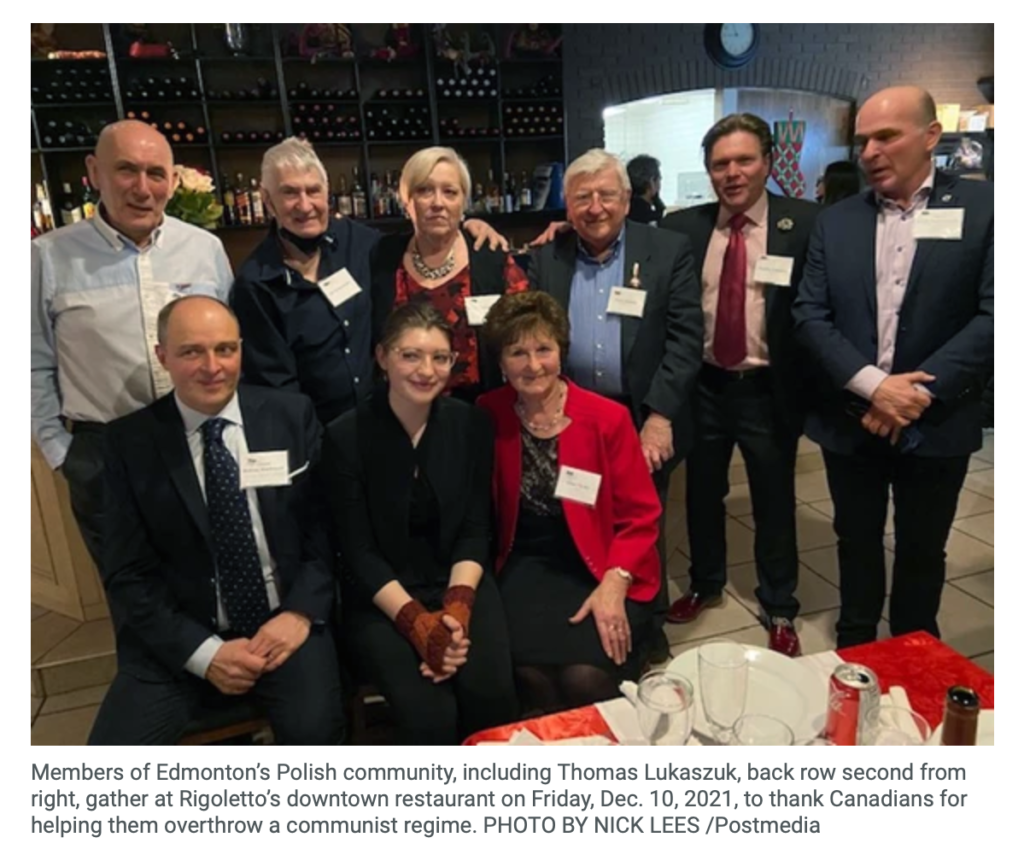
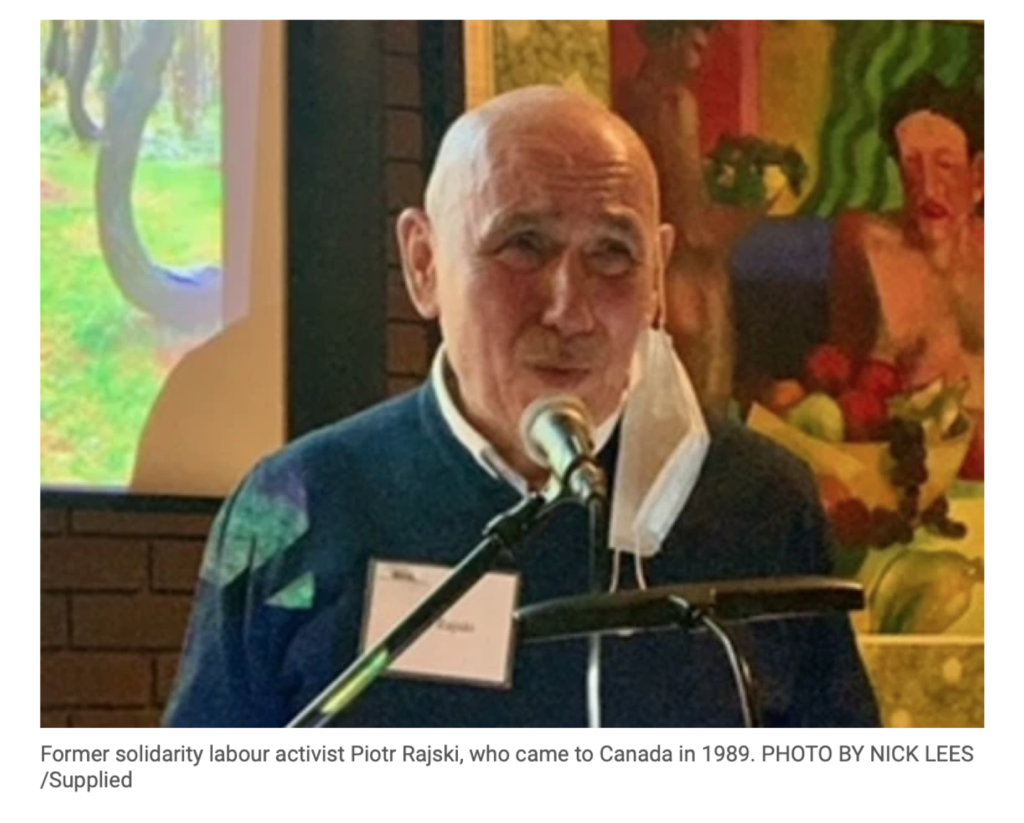
Former solidarity labour activist Piotr Rajski, who came to Canada in 1989 and worked as a mental health psychologist until his retirement in 2019, told dinner guests, “I was fired from my academic position, harassed by the secret police and imprisoned for four months.
“But while this was not pleasant of course, like millions of other Polish people who joined the solidarity movement, I had no doubt getting involved was the right thing to do. I knew I was participating in something of truly historic significance.”
Lukaszuk praised the courage of solidarity labour movement leader Lech Walesa for leading the fight against communism.
“He courageously led the non-government side of negotiations, which lead to the legalization of the solidarity movement and enabled partially free elections in 1989,” he said.
“On behalf of the Polish community, we want to express gratitude to Canadians for welcoming tens of thousands of Polish refugees during that period.”
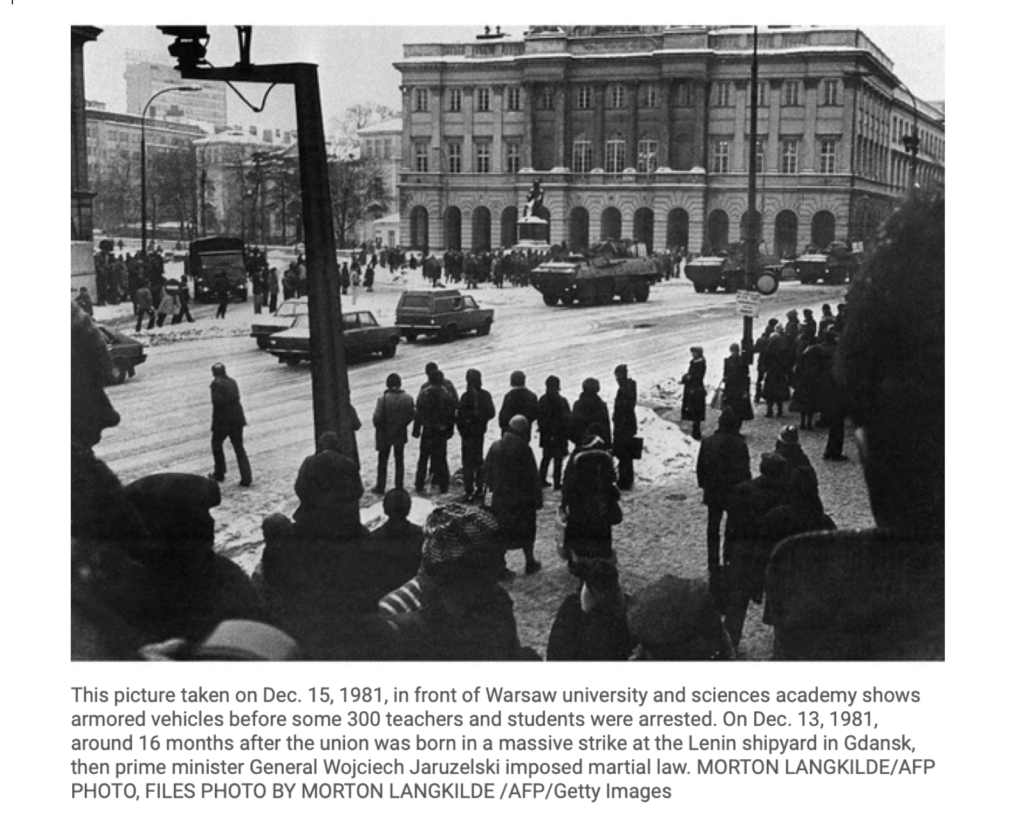
Lukaszuk came to Canada at the age of 13 and went on to study at the University of Alberta and serve as an MLA for Edmonton-Castle Downs for 14 years.
“Canada was a significant contributor in helping refugees,” he said.
“Canadian labor unions raised funds and shipped equipment that allowed solidarity to publish underground newspapers, set up communication networks and finance their operations.
“Canadian journalists and politicians shone light on the dire situation behind the Iron Curtain and exposed human rights violations.
“Meanwhile, Canadian social agencies and individual citizens hosted Poles, who were arriving here from refugee camps and who, like my father, defected from Polish ships.”
Dinner emcee Terese Szlamp-Fryga, who helped found the Polish Historic Society, also noted Canadian politicians were among those in western countries who exerted political and economic pressure on Polish authorities, which was critical in helping bring down the totalitarian regime and giving hope to Poles at home and around the world.
“Social agencies and individual Canadians exemplified the generosity of this country and its citizens by welcoming many thousands of Polish refugees and immigrants at Canada’s borders and assisting them in resettlement,” she said.
“Catholic Social Services worked very closely with the Holy Rosary Parish and the Canadian Polish Congress to assist some of the Polish citizens who had temporary asylum in nearby countries.”
The RCMP also trained police in Poland to help transition the administration of laws after the fall of communism.
Air Canada also became involved and donated cargo planes to transport equipment and other items to Poland.
Szlamp-Fryga said many members of the new Polish community in Edmonton did not have a good command of English but were hungry for credible and accurate information about the events in Poland.
“A local Polish-language radio program fulfilled that need,” she said. “We knew we could depend on it to keep us up to date during those dark days.”
She introduced the radio broadcaster involved, Franciszek Zalewski, who was promptly handed the Order of Merit for Polish Culture by Poland’s Vancouver-based Consul General Andrzej Mankowski.
“Mr. Zalewski stood out and stands out in the creation and dissemination of Polish culture and preserving Polish heritage in Alberta,” said Mankowski.
“Under martial law in Poland, we could only listen to announcements read on official, state-owned television.
“Poles in Warsaw, like me, could also listen to independent radio, but we knew military vehicles with antennas would be trying to locate listeners.”
Edmonton Centre MP and federal Tourism Minister Randy Boissonnault said Canada welcomed some 6,000 Polish refugees that joined the already prominent population of Polish Canadians who settled here after the First World War.
“Polish Canadians made up a sizable percentage of the labour force in mines, the forest industry and on railway construction. Others built farms across Manitoba, Saskatchewan and Alberta, while others settled in larger areas where they opened small businesses. Poles also contributed to Canadian culture immensely, he said.
“Their presence and contributions have made Canada a better place.”
nlees@postmedia.com
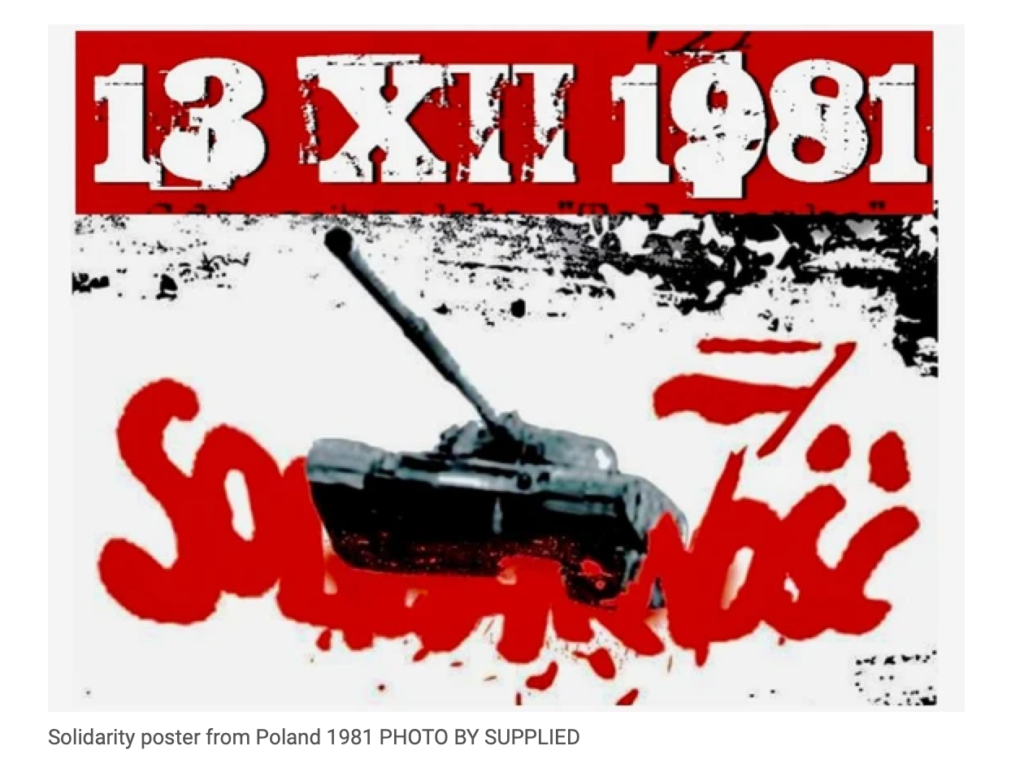
Welcome Speech by Andrew Holko
My name is Andrew Holko and on behalf of the Canadian Polish Historical Society I want to thank you for joining us this evening to mark the 40th Anniversary of Martial Law in Poland.
One of the goals of The Canadian Polish Historical Society is to preserve Polish heritage through collecting and archiving important historical moments and accomplishments of Polish descendants in Edmonton and Alberta, which is what brings us here tonight.
I would like to begin the program in the spirit of reconciliation. We wish to acknowledge that we are on Treaty 6 territory, the traditional meeting grounds, gathering places and traveling route of the Cree, Saulteaux (She-toe), Blackfoot, Metis, Dene (De-nay) and Nakota Sioux (Too).
We honor and respect the elders, the history and languages and ceremonies and cultures of the First Nations, Metis and Inuit whose footsteps have marked these lands, past, present, and future.”
To lead us through our program this evening I would now like to introduce our MC, Terese Szlamp-Fryga.
In 1981, Terese was one of nine members of the Friends of Solidarity gathered at St. Joseph’s College at the University of Alberta to hold a hunger vigil from 10:00 am on December 26th until midnight New Year’s Eve”.
In solidarity with Solidarity, she and her colleagues fasted to illustrated the impact of Martial Law in Poland. In later years Terese helped establish the Canadian Polish Historical Society of Edmonton. Please welcome Terese.
We are here this evening to remember a country declaring war on its own citizens when Martial Law was invoked on December 13th, 1981
But we are also here to remember the generosity and support provided by so many that finally led to Martial Law being repealed 1983 and the end of communist rule in Poland in 1989.
‘Resistors’ … during Martial Law “resistors” were wore as symbol of resistance to Martial Law.
Of course, wearing such a symbol was forbidden, although there was no such law, and could result in interrogation and arrest or worse.
Please join me in a moment of silence in memory of those who perished during Martial Law.
We would like to thank the following without whom the the outcome of Martial Law could have been quite different:
-
Current and past members of the media shone a light on the brutal event of Martial Law and diligently chronicled the cruelty of everyday life in
Poland Journalists were instrumental in spreading images and reports about the predicamentof people coping with the challenges of living and resisting during Martial Law.
-
Labour unions in the west supported the Solidarity trade union with funds and equipment.
Their support played a significant role in helping overturn the Soviet-backed regime and promoting workers’ rights in Poland.
-
Politicians and their governments exerted political and economic pressure on Polish authorities, which was critical in bringing down the totalitarian regime and giving hope to Poles in Polandand abroad.
-
Social agencies and individual Canadians exemplified the generosity of this country and its citizens.
Tens of thousands of Polish refugees and immigrants were welcomed at Canada’s borders and assisted in resettlement.
The extend of the contribution is reflected in a recent letter from Catholic Social Services in Edmonton..
“Martial Law was an incredibly difficult time for the Polish people, many of whom were imprisoned and others had fled the country.
Catholic Social Services worked very closely with the Holy Rosary Parish and the Canadian Polish Congress to assist some of the Polish citizens who had temporary asylum in nearby countries.
Our records indicate that we submitted to the Government of Canada sponsorship for more than 120 Polish refugees, the last of whom arrived and resettled in Edmonton in 1994.
Additionally, Catholic Social Services assisting in the resettlement of several hundred Polish refugees who were accepted by the Government of Canada as government assisted refugees..
both groups of refugees became very proud , contributing and outstanding Canadian citizens!”
-
Air Canada donated cargo planes to transport equipment and other items to Poland.
-
Supportive nation provided a port in the storm and assistance for Polish refugees as they embarked on their journey to freedom and security.
-
The RCMP were instrumental in providing assistance and training to police service in Poland to help transition the administration of laws after the fall of communism.
Representing the RCMP this evening is Staff Sergeant Andy Kyle from K Division here in Edmonton.
Poland’s Perfect Storm – The Solidarity Revolution
-
Honourable Randy Boissonnault, Minister of Tourism and Associate Munisterof Finance and MO for Edmonton Centre
-
His Worship, Mayor Amarjeet Sohi.
-
Piotr Rajski – Although he made Canada his home in 1989 and worked as a psychologist in mental health settings until his retirement in 2019, he was a Solidarity labour activist in his native Poland.
-
Thomas Łukaszuk – Even though he grew up in Canada, our next speaker will share his personal experience as a 12-year-old child during Martial Law.
-
Polskie Radio – Many members of the Polish community did not have a good command of English but were hungry for credible and accurate information about the events in
Poland. A local Polish-language radio program fulfilled that need and more. We knew we could depend on it to keep us up to date as possible during those dark days.
Maya Budzinski, performed a piece for violin – Violin Sonata in D minor, Op. 27, No, 3 “Ballade” By: E. Ysaÿe
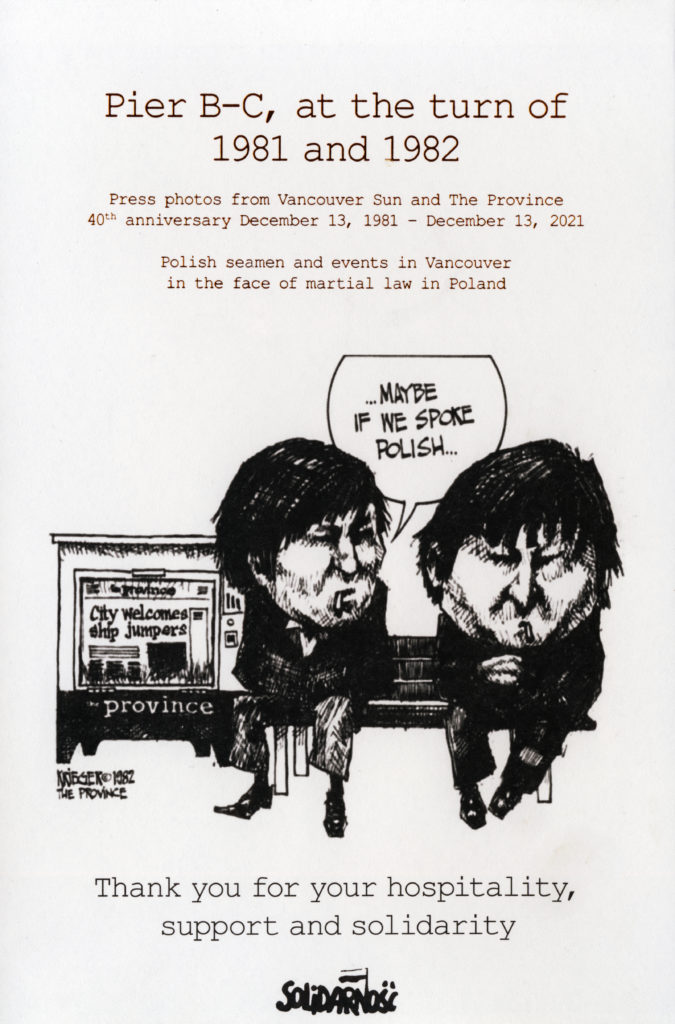
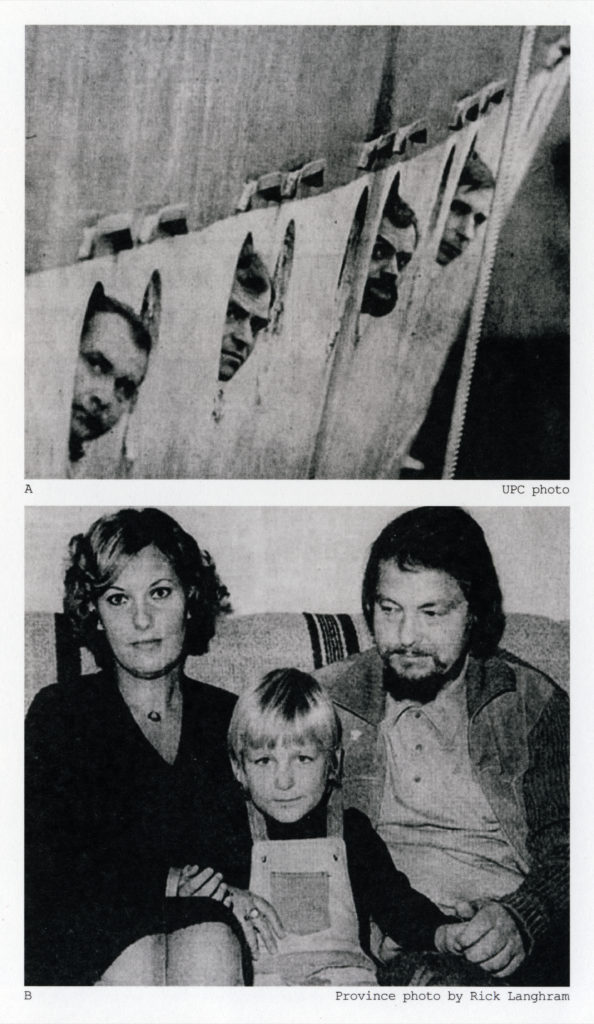
(A) Four seamen stick their heads out of the portholes of the Polish fishing vessel Regulus which berthed in Vancouver.
(B) Polish newcomers Barbara and Andrzej Wasiel, with their four-year-old son Marcin, look forward to a new life in Vancouver.
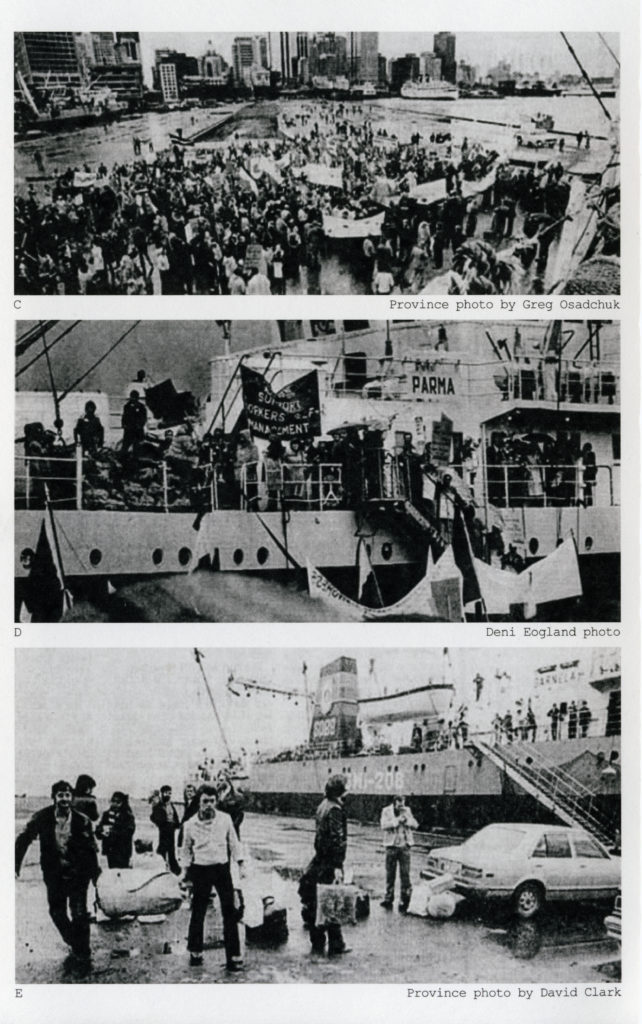
(C) Slogan-chanting Polish protesters, carrying placards and waving flags, gather for the rally at the Pier B-C site.
(D) SOLIDARITY FOREVER… labour demonstration at Pier B-C where Polish fishing vessels are docked.
(E) At Vancouver’s Pier B-C, Polish Seaman walk to bus which will take them to the airport for their flight back to their homeland.
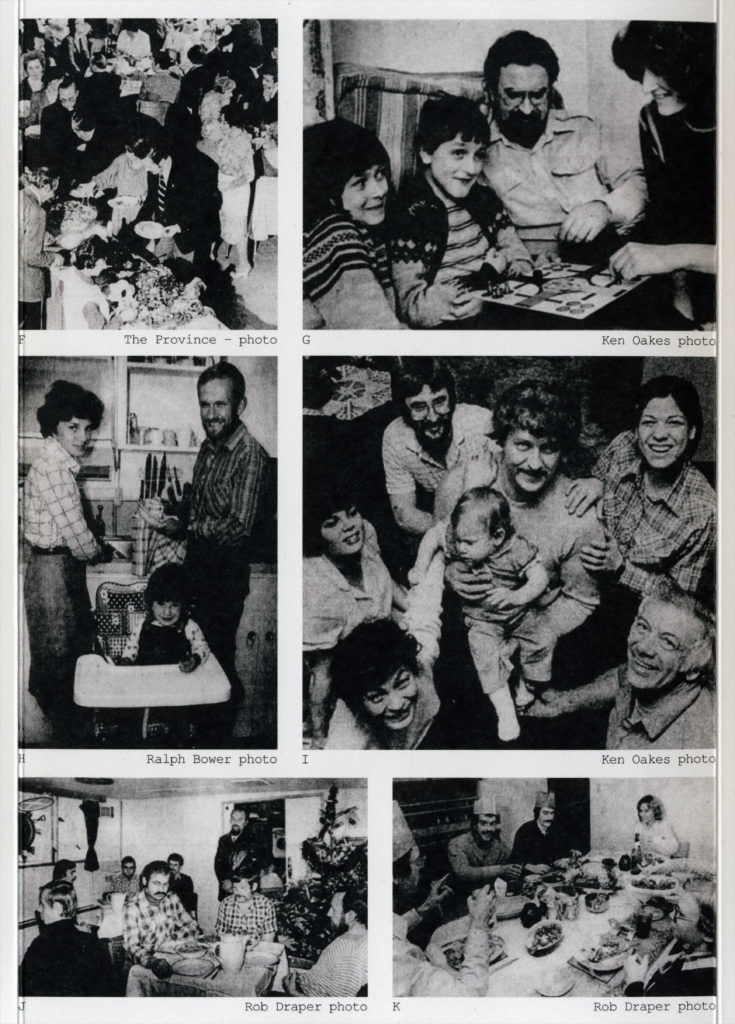
(F) A special Christmas dinner for Polish seamen in Vancouver was marred by anxiety for family and friends as 350 people attended.
(G) Bolko Rawicz and Family… they found Canadians warm and helpful.
(H) Anna, Andrew Leszczynski… new life with daughter.
(I) New Centre of Doug March Family circle is Richard Ganawski. March, right, and wife Elena, left, gave him “a place to stay.”
(J) The Drear… a preoccupied gloom pervades celebrations on board the Polish ship Parma at Vancouver’s Pier B-C.
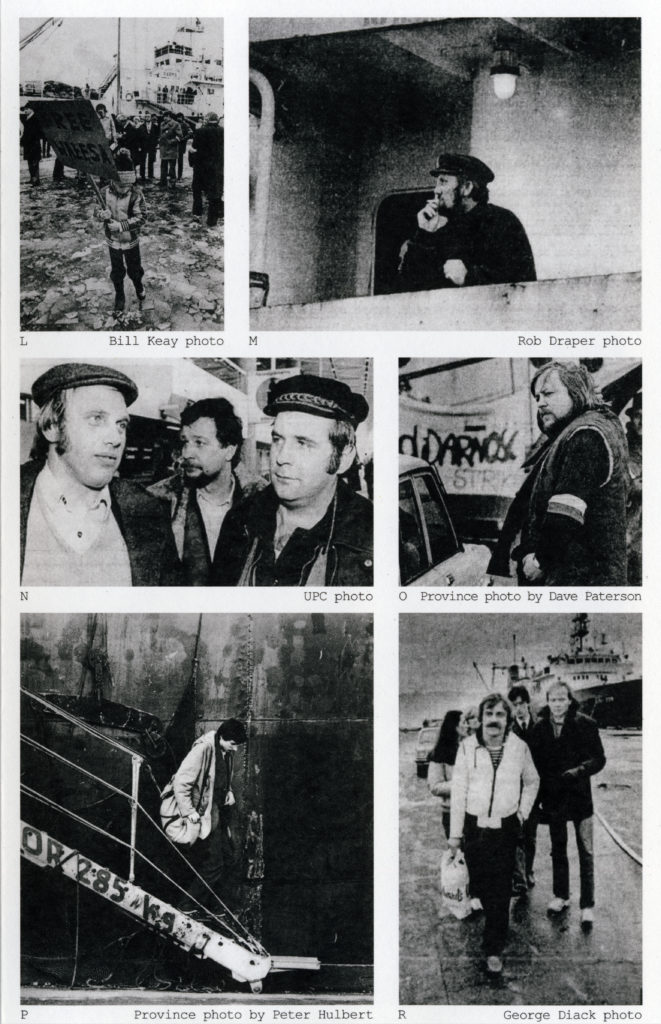
(K) And the cheer…Polish defectors (centre) Gregor Filipowski and Marian Wosztol enjoy Christmas dinner with Ken and Mary Fleming and family.
(L) Boys will be boys… placard-carrier finds ice more interesting than demonstration.
(M) Sailor aboard regulus…calm amid swirling intrigue and rumors of defections.
(N) Three sailors who defected after their plane landed at Mirabel head for immigration and customs at the airport.
(O) Jan Mardzinski, delegated leader of Solidarity members on ship docked in Vancouver.
(P) Seaman Robert Medrek leaves the Polish fishing vessel Parma, docked in Vancouver.
(R) Dec 17: The simmering situation in poland erupts as government moves against the Solidarity movement. The repercussions are felt in Vancouver as Polish fishermen seek asylum.
Acknowledgments:
Newspaper.com
Vancouver Sun
The Province
Edmonton Jornal
The Consulate General of the Republic of Poland in Vancouver
This is BC: 40 years since show of support for Polish asylum seekers
For many in the local Polish community, this holiday season marks the 40th anniversary of martial law being declared in their homeland.
When the Communist government began restricting civil liberties, it had a ripple effect in our province as British Columbians rallied around dozens of Polish fishers and crew after they walked off their ships – seeking asylum in Canada.
Jay Durant has more.
Global News BC
We would like to thank all guests for honouring with their presence the ceremony
commemorating the 40th anniversary of the imposition of martial law in Poland
Guest list:
-
✅ Randy Boissonnault, Minister of Tourism and Associate Minister of Finance – Government of Canada
-
✅ Mayor Amarjeet Sohi (City of Edmonton) & Mrs. Sarbjeet Sohi
-
✅ Stefany Sorto (Assistant to Minister)
-
✅ Consul General Andrzej Mańkowski (Republic of Poland))
-
✅ John Szumlas (Hon. Consul of Poland)
-
✅ Ed Stelmach & Marie Stelmach
-
✅ Alexander Szenthe (Hon. Consul Hungary)
-
✅ Anna Szenthe (Canadian President – Hungarian Diaspora Council)
-
✅ Consul General Danyleiko & Companion (Consul General of Ukraine)
-
✅ S/Sgt. Andy Kyle (Royal Canadian Mounted Police)
-
✅ Brian Hoekstra & Heather Hoekstra (Edmonton Firefighters’ Union)
-
✅ Travis Dugas (First Nations)
-
✅ Lorne Dach MLA
-
✅ Terese Szlamp-Fryga & Maja Szlamp-Fryga
-
✅ Piotr Rajski & Danuta Rajska
-
✅ Frank Zalewski (World FM) & Grażyna Zalewska
-
✅ Jan Tereszczenka & Winnie Toh
-
✅ Joseph Patrouch (University of Alberta) & Felice Lifshitz
-
✅ Adam Takacs (Wirth Institute – U of A)
-
✅ Lukasz Woinski (Wirth Institute – U of A)
-
✅ Alexander Carpenter (Wirth Institute – U of A)
-
✅ Richard Bochinski & Tara Bochinska
-
✅ Darek Bochinski
-
✅ Graham Thomson (CBC & iPolitics)
-
✅ Carolyn Dunn (CBC National News – Calgary Office)
-
✅ Nick Lees & Nancy Taubner (Edmonton Sun/Journal)
-
✅ Keith Gerein (Edmonton Journal)
-
✅ David Climenhega (United Nurses of Alberta / Columnist)
-
✅ Tim Spelliscy & Peggy Spelliscy (Past GM – Global TV)
-
✅ Brent Pushkarenko (630 CHED)
-
✅ Eleanor Olszewski & Larry Krushelnitzky
-
✅ Dan MacLennan (AUPE – Past President) & Dianne Beaton
-
✅ Abe Silverman (B’Nai Brith)
-
✅ Teresa Ignasiak & Leszek Ignasiak
-
✅ Teresa Ziembinska & Marian Ziembinski
-
✅ Andrzej Walny & Nina Walny
-
✅ Ewa Stokowska & Stan Wilk
-
✅ Ela Sawicka & Ania Sawicka
-
✅ Helena Faćsko
-
✅ Andrzej Proczkowski & Rysia Proczkowski
-
✅ Andrew Holko & Jacquie Holko
-
✅ Renata Holko
-
✅ Maja Budzinska
-
✅ Helena Fita
-
✅ Krystyna Szczęsny
-
✅ Marek Bandowski
-
✅ Jan Pierzchailo & Patti Pierzchailo
-
✅ Kazimierz Walewski & Mrs. Walewska
-
✅ Irena Bożymowska & Leon Bożymowski
-
✅ Kazimierz Walewski & Mrs. Walewska
-
✅ Tony Muszynski & Cynthia Tonet
-
✅ William Chodkiewicz (Polish Humanitarian Society)
-
✅ Joanna Ciapka-Sangster
-
✅ Thomas A. Lukaszuk
A few photos from the ceremony in Rigoletto commemorating the martial law in Poland 40 years ago.
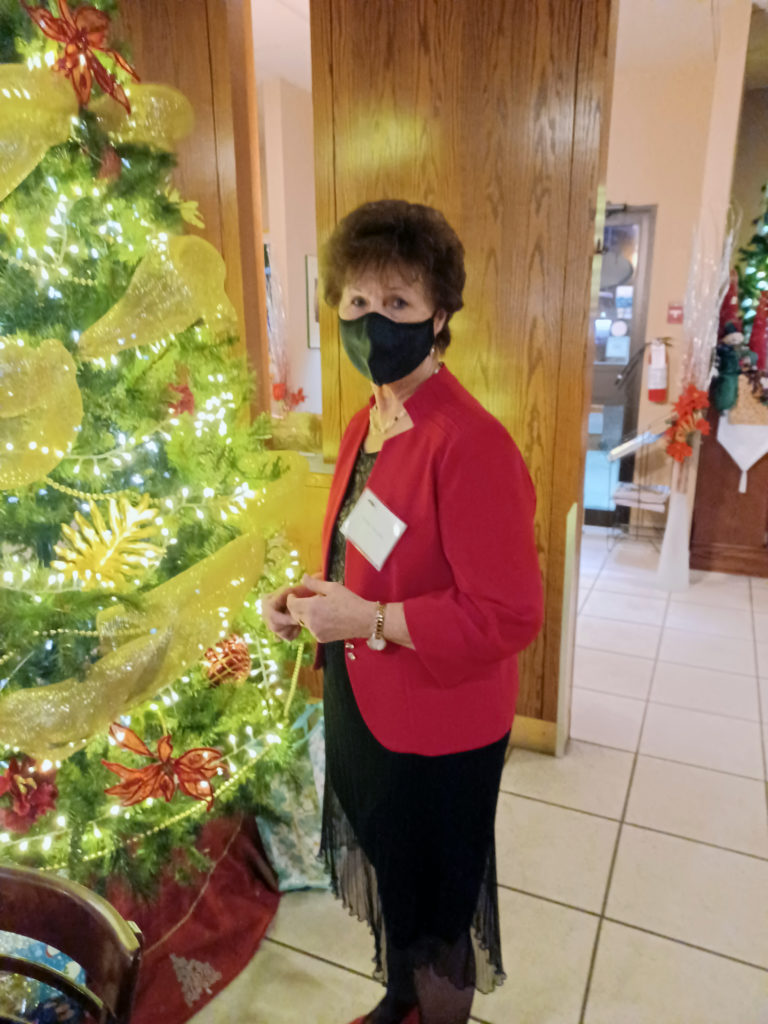
Helena Faćsko – President of the Canadian Polish Historical Society
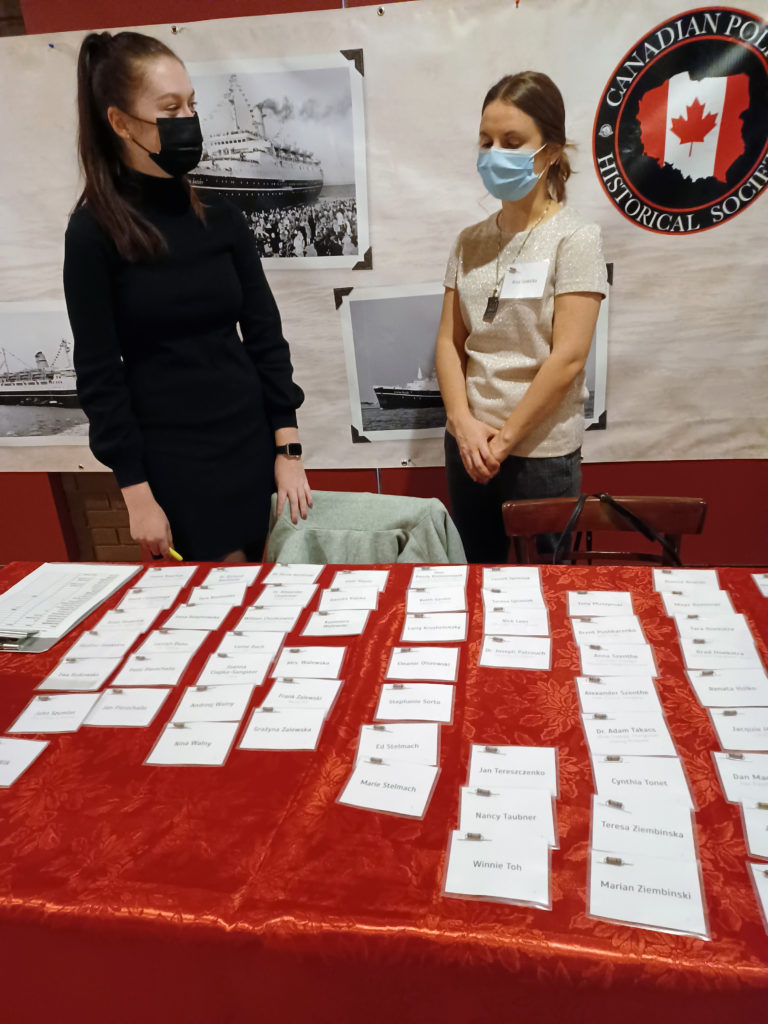
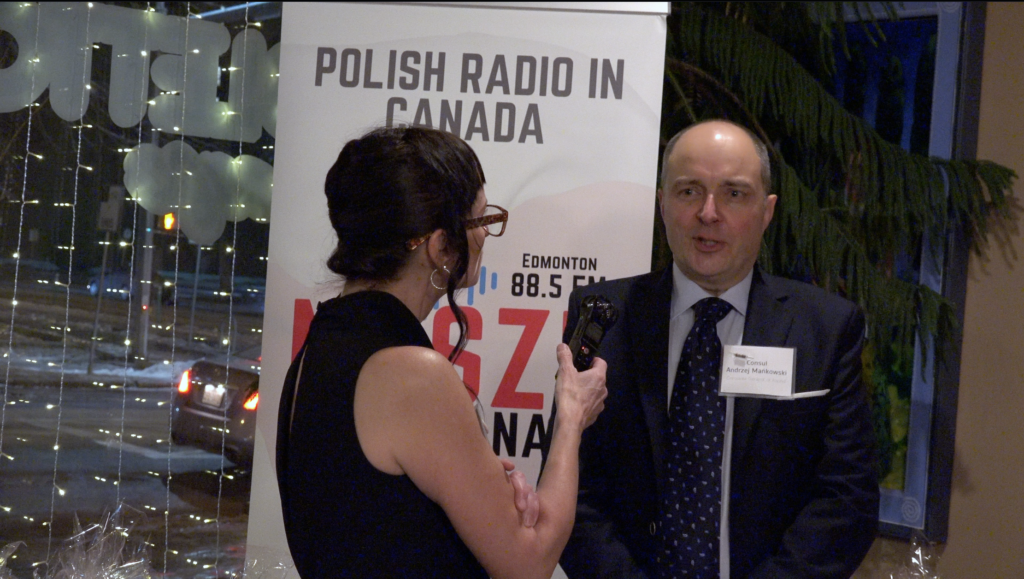
Consul General Andrzej Mańkowski Republic of Poland in Vancouver, gives an interview to the editor of “Nasze Radio Canada 88.5 FM” – Joanna Ciapka-Sangster
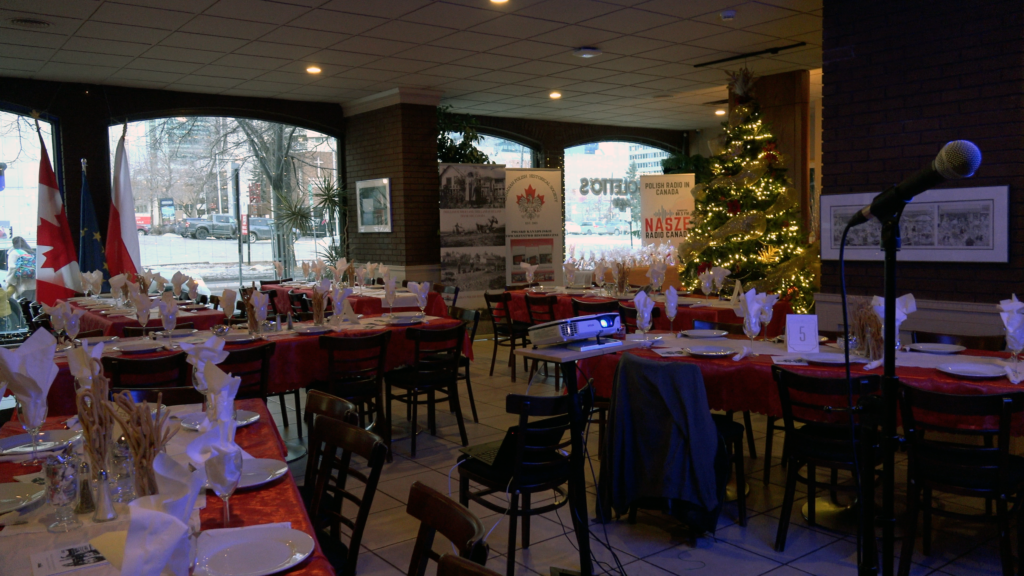
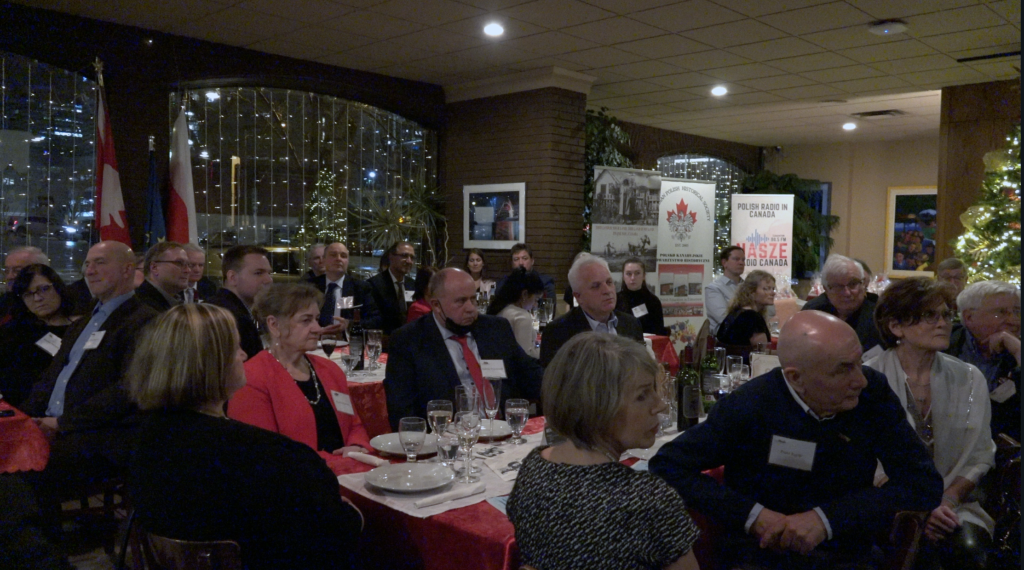
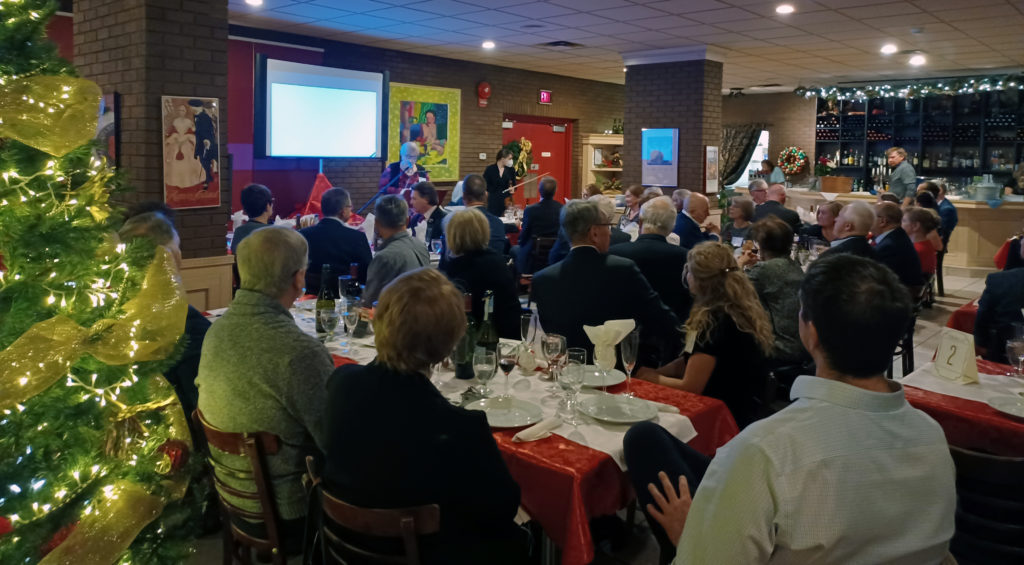
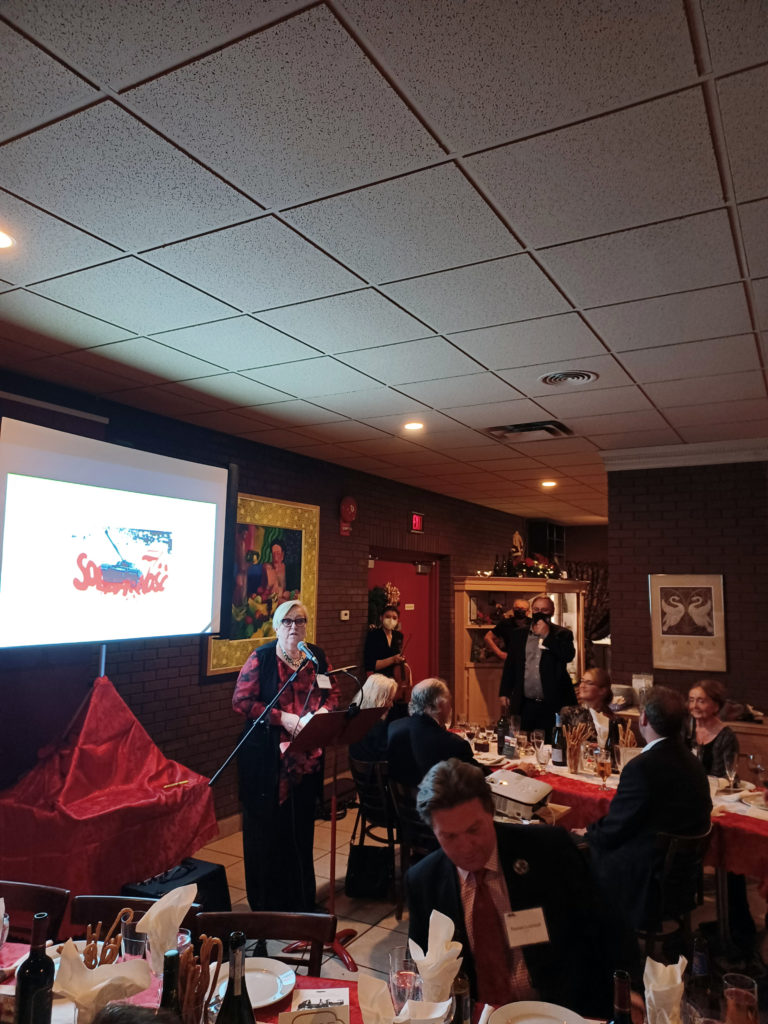
At the microphone, the master of the ceremony, Terese Szlapm-Fryga
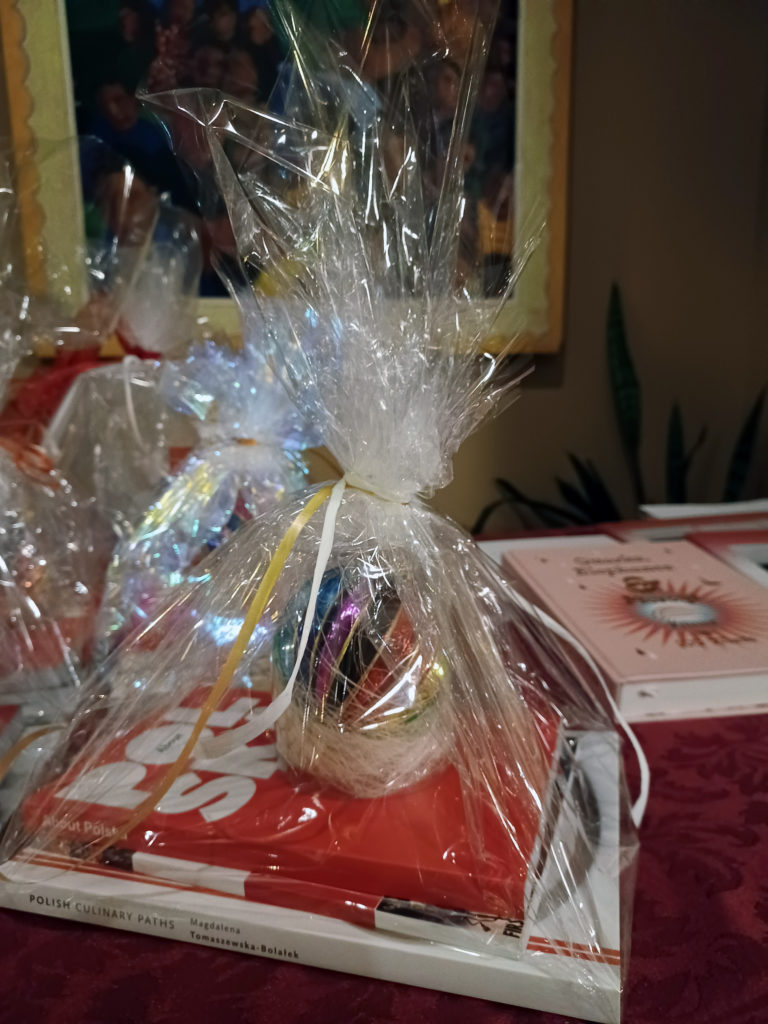
Each of the invited guests received a special gift




